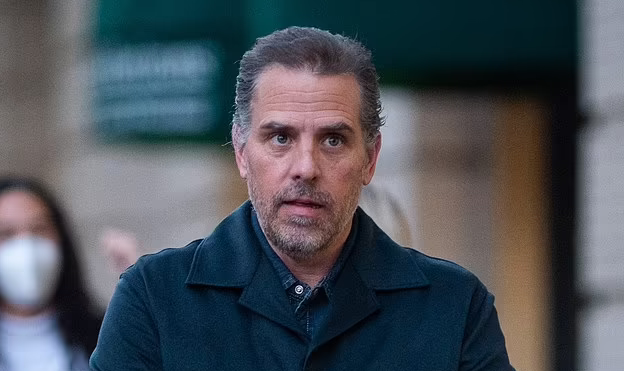by Victor Davis Hanson via American Greatness,
President-elect Donald Trump recently had a “talk” with newly elected Mexican President Claudia Sheinbaum about the millions who have crossed through Mexico to enter the U.S. illegally.

Afterwards, Trump reported that their conversation went well, and supposedly both had agreed to secure the U.S. border.
But given long-standing, de facto Mexican policy to rely on and profit from an open U.S. border, it was not long afterwards that Sheinbaum claimed she had not been so accommodating.
Or, as she now put it of the Trump conversation, “I give you the certainty that we would never—and we would be incapable of it—propose that we would close the border.” And of course, she is right: Mexico never would wish for a secure U.S. border, although it is wrong that she is incapable of guaranteeing one should she choose to do so.
What, then, is going on?
Over the last half-century, Mexico has gradually, even insidiously, developed both a one-sided, asymmetrical relationship with the U.S. based on professed mutual benefit and yet sought to leverage America by claiming it is supposedly guilty for two centuries of oppressive treatment.
How does the strange U.S.-Mexico supposed co-dependence seem to work?
The Mexican government has traditionally seen the U.S. as an endlessly wealthy country, liberally governed, and more or less willing to listen to Mexico’s grievances of the sort that are common in asymmetrical partnerships.
About 60 percent of the Mexican people traditionally in polls have voiced a positive view of the United States, yet a surprisingly low number when considering the millions who try to cross its border illegally each year.
Nonetheless, Mexico for decades has conveniently explained the vast influxes across the border, unaudited and illegal, as largely in America’s interests - and mirabile dictu even to Mexico’s disadvantage. Polls tell, however, a vastly different and far more accurate story.
Logically, some 61 percent of Mexicans in a recent 2024 Pew Center Research Poll voiced favorable views of the United States, whose open borders, generous welfare systems, billions of dollars in remittances, and now-defunct immigration laws they see as entirely in their interest. In contrast, 60 percent of Americans, one of the highest numbers on record, now hold unfavorable views of Mexico, perhaps because of the cynical harm it has done through a perforated border.
Mexico says its emigrants, along with those from Central and South America who cross its own borders with relative ease—often with tacit support—supply America with generations of industrious, low-cost labor, robbing it, in a sense, of millions of its own citizens.
It adds that the attractions of El Norte mean that Mexico must put up with human caravans crossing its own sovereign territory to supposedly meet the hungry American demand for labor, drugs, and sex. Indeed, nearly every recent Mexican president has argued that America’s thirst for lethal fentanyl is responsible for the creation of Mexican cartel lords that now run large swaths of Mexico itself.
However, the problem with such ancient and modern disingenuousness is that even if the United States accepted these excuses, apologized, and promised to close the border and keep clear of Mexican affairs, Mexico would grow even more irate. The reason why is that the current relationship has now grown unbalanced to the point of absurdity—sometimes evidenced in past polls that revealed a majority of Mexican citizens both believed in the mutually exclusive propositions that the American Southwest properly still belongs to Mexico and yet they wished to leave Mexico to emigrate to a non-Mexican northward if given the chance.
In truth, Mexico would face insolvency if it did not receive its current some $63 billion in U.S. remittances, largely sent by its own people who crossed into the U.S. illegally. Trump talks of levying a 25 percent tariff on Mexican imports should Mexico not cease undermining the American border. An additional lever would perhaps be to slap a 30 percent tax on all remittances sent from the U.S. to Mexico. That would both encourage capital to stay in the U.S. and raise over $20 billion in excise fees, more than enough proverbially to “pay for the wall.”
However, such largess is still more one-sided since much of the remittances are made available through not just the industriousness of Mexican expatriates but also the generosity of American taxpayers. Their multifaceted subsidies to the undocumented free up billions for them to help support millions of Mexico’s poor in a fashion that Mexico City apparently is either unable or unwilling to ensure.
The annual flight of millions from Mexico is a sort of updated version of Frederick Jackson Turner’s “frontier safety valve theory” of the American West. Accordingly, the Eastern poor and potentially rebellious fled westward in hopes of a new, better life rather than marching on Washington for cancellation of debts or redistribution of property. Mexico City apparently feels that without their own El Norte “frontier,” millions of southern and indigenous Mexican citizens might instead head en masse to Mexico City.
As for the cartels, Mexico knows well that China sends raw fentanyl to its country unimpeded, where cartel factories prepare it for export to America’s addicted and recreational users. There, disguised as less toxic drugs and even foodstuffs, fentanyl will end up killing up to some 100,000 Americans a year—an annual death toll nearly double the total number of U.S. fatalities in the Vietnam War.
Mexico, which also helps China avoid tariffs on its exports to the U.S. by assembling its products in NAFTA and tariff-free Mexico, certainly knows that the Chinese seek both to profit from its cartel ties and to kill Americans and undermine its security in the bargain.
The macabre gambit is likely seen as the Chinese version of an updated Opium War payback, with the twist that the former addicts are now the suppliers.
In an equally sick way, the cartels infuse into the Mexican trickle-down economy, albeit in nefarious and criminal ways, some $30 billion in additional U.S. dollars from Americans addicted to imported Mexican-made drugs tailored for the U.S. market. The presidents of Mexico usually say little about this second source of billions in U.S. foreign exchange or claim American addicts, not Mexican suppliers, explain the growing death and destruction on both sides of the border.
While in office, former President Obrador often said strange things. Two of the most pugnacious were his high-five boast that some 40 million of his own citizens had fled Mexico to cross the border: “Just imagine. There are 40 million Mexicans in the United States—40 million who were born here in Mexico, who are the children of people who were born in Mexico.” (Obrador never explained why his own citizens would willingly flee their own country to a nation habitually caricatured in the Mexican press as racist and exploitive.)
Obrador also periodically delighted in interfering in US elections by urging Mexican expatriates in the U.S. to vote against all Republicans, presumably because they seemed at times to threaten to kill the Mexican golden goose of illegal immigration.
Indeed, in 2023, Obrador urged American Hispanics to never vote for Ron DeSantis’s presidential primary campaign—an irony given Mexico’s chronic complaint of Yanqui interference in Latin American politics.
Obrador believed, as many presidents before him no doubt concurred, that the 40 million expatriates and Mexican-American children, if they were distant from Mexico long enough, would romanticize the country, and so, like most immigrants, become a powerful lobbying force on Mexico’s behalf.
In La Raza literature of the past, and in Mexico’s chauvinistic moments, illegal immigration was envisioned as the ironic response to the ancient “theft’ of the American Southwest. The problem with that thesis is that most Mexicans, as polls have shown, would prefer to live in an American Southwest than a Mexican south.
And it is also increasingly likely that Mexican-Americans will be more prone to vote for border security than open borders—again further proof that their self-interest as patriotic Americans trumps Mexico’s cynical attempts to use them as political pawns. If those trends continue, the American Left and the Mexican government may well lobby for a secure border, in fear they are only augmenting a growing MAGA constituency.
In sum, Mexico understands the myriad ways that an open border, the destruction of U.S. immigration law, illegal immigration, and emigration of millions of its own citizens to America are entirely in its own interests and so hopes to see the continuation of the Biden-Harris-Mayorkas appeasement.
But, given the huge numbers of human trafficking, the chaos, the drugs, the violence, and the financial costs of supporting millions, an open border is increasingly seen by Americans as not to their advantage—as we saw in the recent Trump victory. That reality, not the rhetoric of Mexican presidents, will govern all future negotiations—a truth that President Sheinbaum should digest before she sounds off about a border that she knows her country has done so much to deliberately destroy—and to America’s detriment.
https://www.zerohedge.com/geopolitical/yes-mexico-knows-exactly-what-it-doing



